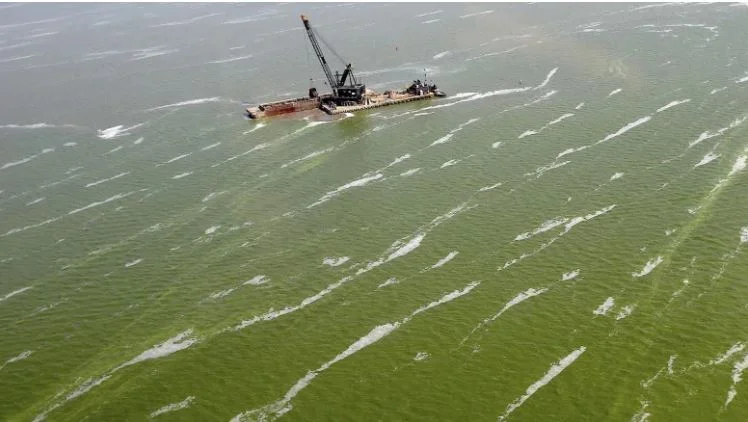Farmers in Waterloo Region have reached a milestone in making farm improvements to protect water quality. As of December 2020, more than $20 million in total capital projects have been completed through support from the Region’s Rural Water Quality Program (RWQP). The RWQP provides financial and technical assistance to farmers implementing voluntary projects to improve and protect water quality. Funded by the Region of Waterloo, the program started in 1998 to address non-point sources of sediment and nutrients and to protect groundwater.
Stopping algae blooms may start on farmlands
A handful of Chatham farms might hold the answer to reducing toxic algae blooms in the Great Lakes. These farms are collecting and analyzing their agricultural runoff, in hope of reducing the amount of phosphorus entering the waterways. It's part of a project, started by two organizations in Spring 2016, which aims to come up with a strategy to deal with toxic algae blooms. Out of that idea for the project — between the Ontario Federation of Agriculture and the Great Lakes and St. Lawrence Cities Initiative — came the Thames River Phosphorus Reduction Collaborative.



